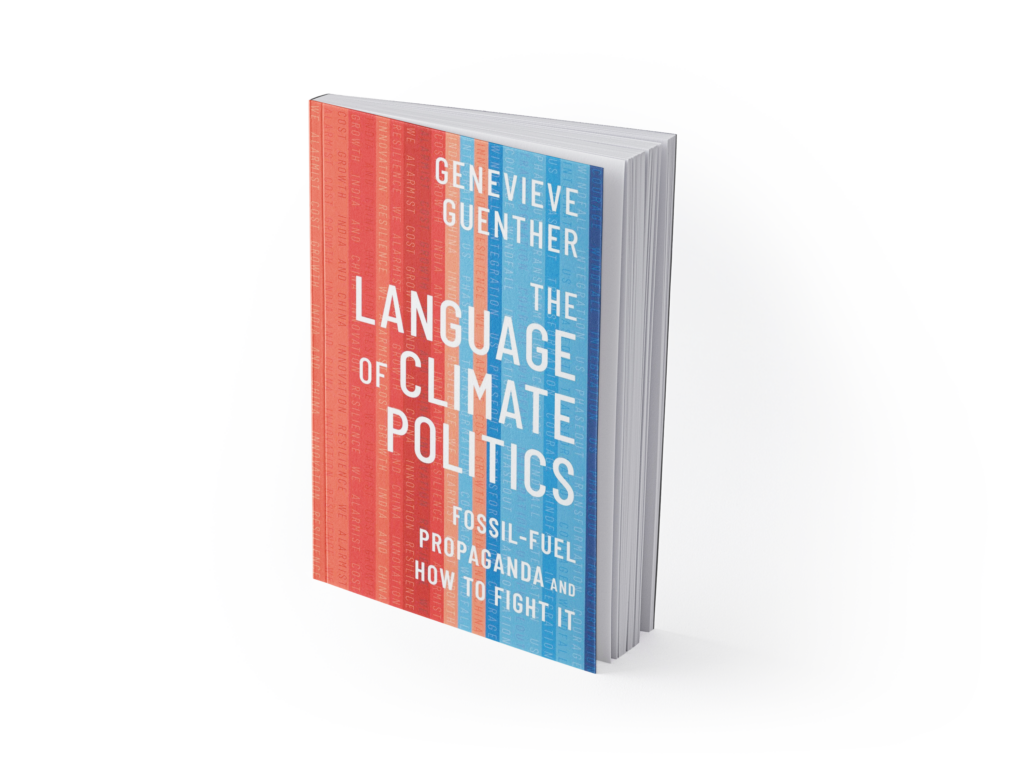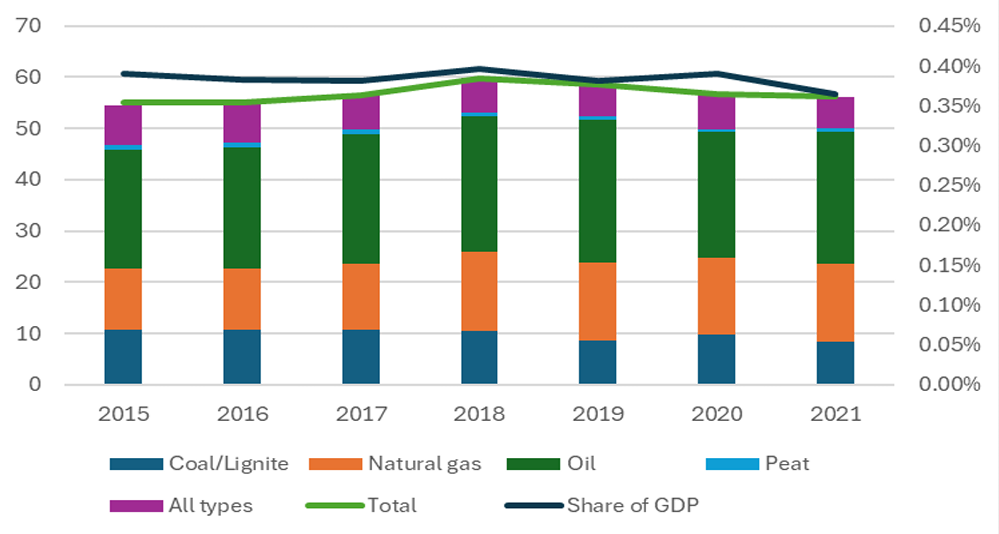Time to Divest from Fossil Fuels
The Language of Climate Politics: Fossil-fuel propaganda and how to fight it
Dr. Genevieve Guenther. Oxford: Oxford University Press, 2024, 280 pages. $29.99

This is an important book.
The debate ‘Is climate change really happening?’ is long over. Yes, it is – the science proves it. True, a few – often very vocal attention-seeking individuals – remain in denial but virtually everyone else, including the fossil-fuel companies themselves, accept it is happening. Consequently, the debate has shifted into new territory, territory where the fossil-fuel industry and its supporters (apologists) are way ahead of the field in stymieing the necessary climate action needed to – put it bluntly – ‘Save the world’.
It is into this territory that Dr. Guenther takes us and acts as our guide, pointing out the techniques, and importantly the language, used by the fossil-fuel lobby to drive its so far highly successful propaganda machine. Having revealed to us their modus operandi she moves from being a forensic academic to a hopeful campaigner providing us with the tools we will need, including the language tools, to turn back this tide of fossil-fuel propaganda.
This is not a long book, just under two hundred pages, with no pictures, diagrams or charts. It is well written but is best consumed in portions as there is a lot to unpack and digest. Yes, the book is focused on the USA which makes sense here given that the USA is the biggest producer of fossil-fuels, the biggest emitter and home to the biggest group of advocates for continued fossil-fuel use.

In her Introduction, Guenther explains that the fossil-fuel industry spins their propaganda out of six key terms that dominate the language of climate politics:
- alarmist
- cost
- growth
- India and China
- innovation
- resilience
Together, these terms weave a narrative that goes something like this:
“Yes, climate change is real but calling it an existential threat is just alarmist – and anyway phasing out coal, oil, and gas would cost us too much. Human flourishing relies on the economic growth enabled by fossil fuels, so we need to keep using them and deal with climate change by fostering technological innovation and increasing our resilience. Besides, America should not act unilaterally on the climate crisis while emissions are rising in India and China.” (p.2)
These six key terms then become the headings for the book’s six chapters. Each chapter is dense with useful facts that can be deployed to counter “the incorrect and dangerous belief that the world does not need essentially to stop using fossil fuels.” (p.3)
Interestingly, Guenther spells out how the Democrats have also fallen for the fossil-fuel industries propaganda, not just the Republicans.
The book is dripping with rebuttal facts which I am now trying to memorise – or at the very least one from each chapter. For instance, on cost:
“A study out of Canada’s University of Waterloo found that by 2022 the total cumulative value of six major US public pension funds in Alaska, California, New York State, Oregon, and Wisconsin would have been 13 percent higher had these funds disinvested from fossil-fuel holdings a decade before". (p.179)
Now quote that to the next person who tells you it is too expensive to shift away from fossil-fuels!
